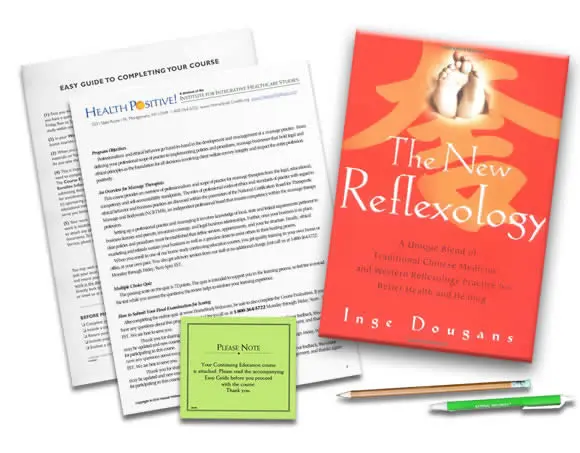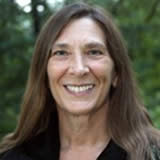
Reflexology has been an effective way to relieve stress, alleviate pain and combat ailments. Integrating traditional Chinese Medicine and standard Western reflexology practice, this continuing education course identifies reflexology points and the corresponding Chinese meridians on the foot for a unique and proven method to getting even better results. In simple and straightforward terms, the course text explains why the meridians are essential for reflexology, how to use meridian therapy and the 5 elements for effective assessment and treatment, how to relate structural foot problems to imbalances in the rest of the body and much more.
In this course, you will explore:
Dozens of illustrations are included to guide readers step-by-step through the treatments.
Sarah Moore, LMBT
2/11/2025
kimberly Lawrence, LMT, BCTMB
2/10/2025
Sophia Sherman, LMT, BCTMB
1/12/2025
Ciel Dafford, LMT, BCTMB
12/24/2024
Barbara Stoffregen, LMT
12/21/2024

Sharon Burch holds a Masters Degree in Nursing and has been practicing as a nurse since 1974. She is currently a Registered Nurse in the state of Arkansas. Additionally, Ms. Burch studied under many of today's leaders in massage therapy and bodywork during the 1980s, became Nationally Certified through the NCBTMB in 1993 and holds a professional membership with the AMTA.
As founder of Health Positive!, Ms. Burch has created over 60 home study nursing and massage continuing education programs, performed over 65 public, live educational presentations, has written two published books, served as a member on the NCBTMB Continuing Education committee and was a founding member of the National Association of Nurse Massage Therapists.
Sharon is an instructor on many of the Institute's programs and has authored and co-authored various ethics courses and additional titles such as Touch for the Seriously Ill, Stress Reduction Through Bodywork, Staying Well – Naturally, Cardiopulmonary Health and Illness, Chronic Pain Management, Marketing Massage in Four Easy Steps, Preventing Medical Errors, HIV Update for Massage Therapists and Bodyworkers, Understanding HIV, Massage for Edema and more.


Take our free online course: Ethics Refresher
We will not rent/sell your email to anyone.
You'll also receive our newsletter and special offers.
Thank you! An email will be sent to the address provided with instructions on how to enroll in this 1 CE hour course - FREE!
If you do not see our email within a few minutes of signing up, please check your Spam/Junk folders it may have been delivered there instead of your inbox.
If, by chance, you still have not received it within 5 minutes, please call us at 1-800-364-5722, Monday-Friday, between 9am-12:30pm and 1:30pm-5pm EST for assistance.